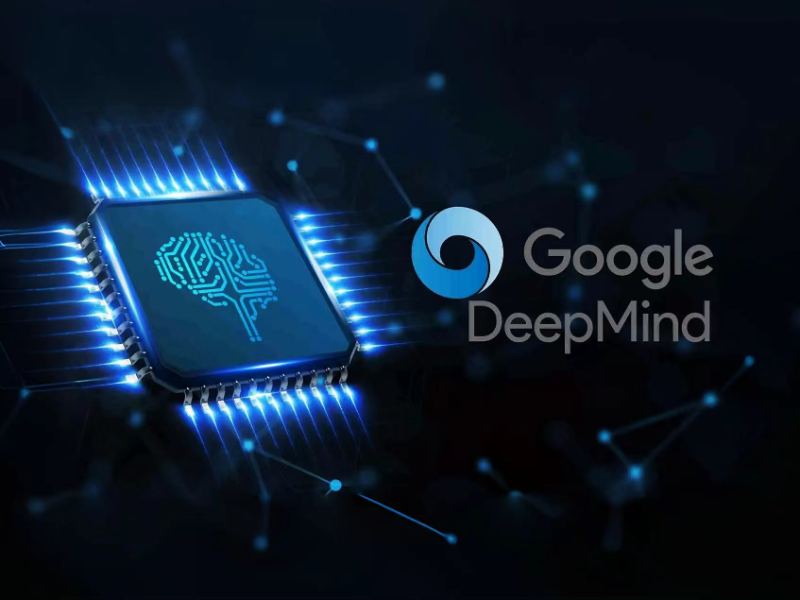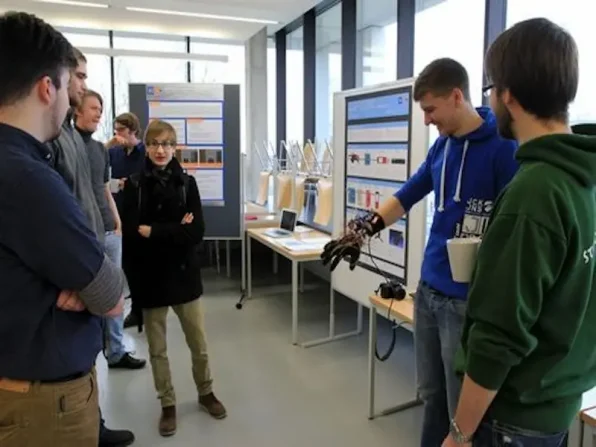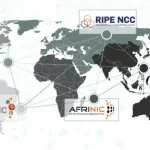- DeepMind in healthcare can accelerate innovation in medical scientific research and clinical practice, improve the quality and efficiency of healthcare services, and better serve the needs of patients and healthcare organisations.
- DeepMind’s work in climate modelling can accelerate innovation in climate science research and climate prediction technologies, improve climate change monitoring and response capabilities, better protect the environment, maintain social stability and promote sustainable development.
- DeepMind can accelerate the discovery and understanding of scientific knowledge, improve the efficiency and innovation of scientific research, promote the progress of science and technology, and provide new ideas and methods for solving the complex problems faced by human beings in the field of scientific research.
Google DeepMind is a Google artificial intelligence (AI) company headquartered in London, founded in 2010. DeepMind’s mission is to use advanced AI technologies to advance science and solve complex real-world problems for the benefit of all people, and to be an international leader in the fields of deep learning and reinforcement learning. DeepMind is an international leader in deep learning and reinforcement learning, and this blog describes different uses of Google DeepMind in healthcare, weather forecasting, and scientific research.
Also read: Demis Hassabis: Co-founder of DeepMind was a child chess prodigy, then AI pioneer
DeepMind in healthcare
DeepMind can develop automated deep-learning-based medical image analysis tools that can be used to assist physicians in disease diagnosis and treatment planning. For example, deep learning algorithms can be used to analyse MRI (magnetic resonance imaging), CT or X-ray images to automatically detect and diagnose tumours, lesions or other abnormalities.
DeepMind can develop predictive models that can be used to anticipate trends in a patient’s disease, evaluate the effectiveness of treatments, and develop personalised treatment plans. These models can be trained and optimised based on a variety of data sources, such as patients’ medical history, physiological indicators and genetic information, to provide doctors with more accurate and timely clinical decision support.
The amount of data generated in healthcare is large and complex, and DeepMind’s data management and processing technologies can help healthcare organisations better manage and utilise these data resources. DeepMind can develop highly efficient platforms for storing, processing, and analysing healthcare data to provide more comprehensive and reliable data support for doctors, researchers, and policymakers.
DeepMind’s technology can be used to accelerate the process of clinical trials and research, leading to faster development and adoption of new drugs, treatments and medical technologies. DeepMind can use its data analytics and simulation technologies to optimise clinical trial design, identify potential therapeutic targets and drug targets, and predict drug efficacy and side effects.
Also read: Google DeepMind CEO Demis Hassabis receives knighthood for AI technology
DeepMind in climate modelling
DeepMind can develop data-driven climate-based models that use large-scale observational data and model output data to train and optimise models, improving their ability to understand and describe the complexity and uncertainty of the climate system. These models can be used for applications such as climate change prediction, early warning of extreme weather events, and risk assessment.
DeepMind’s data analysis and pattern recognition technologies can be used to analyse and identify the formation and evolution patterns of extreme weather events (such as storms, floods and droughts) to provide more accurate and timely weather warning and risk management services.

DeepMind can be used to develop intelligent monitoring and forecasting systems for extreme weather events, providing timely responses and decision support to governments, businesses and the public.
Climate data is often large, diverse, and complex, and DeepMind’s data management and processing technologies can help improve the quality, usability, and analysability of data.
DeepMind can develop an efficient climate data processing and analysis platform that integrates, stores, processes, and analyses multiple data sources, including meteorological observations, model simulations, and remotely sensed data, to provide more comprehensive and accurate data to support climate research and decision-making.
DeepMind’s optimisation algorithms and automation techniques can be used to adjust and optimise the parameters of climate models to improve model fidelity and prediction accuracy.
DeepMind can develop intelligent climate model optimisation tools to automatically adjust and optimise climate model parameters to improve model performance and efficiency.
DeepMind’s technology can provide decision support to governments, enterprises and social organisations, and DeepMind can develop intelligent climate change decision support systems to assess climate change impacts, risk management, and the formulation of response measures, and provide decision-makers with scientific evidence and policy recommendations.
DeepMind in scientific research
DeepMind’s machine learning and data analytics technologies can be used to process and analyse large-scale scientific data, such as astronomical observation data, biomedical data, and earth remote sensing data.
DeepMind can develop intelligent data processing and analysis tools to help scientists discover patterns, regularities, and correlations in their data, thereby driving progress in scientific research.
DeepMind technology can develop deep learning-based scientific models and simulation tools for studying and understanding complex systems and phenomena in a variety of scientific fields, including astronomy, biology, and earth.
DeepMind can develop efficient scientific computing tools and algorithm libraries to improve the efficiency of scientists in simulation, computation, and analysis to accelerate the progress of scientific research.
DeepMind technology can develop intelligent scientific discovery and hypothesis validation tools to help scientists mine new knowledge and insights from massive amounts of data, and verify and confirm the validity and reliability of scientific theories and hypotheses.
DeepMind’s interdisciplinary teams can collaborate with experts and researchers in various scientific fields to solve interdisciplinary and complex problems. DeepMind can build interdisciplinary research platforms and collaborative networks to promote exchanges and collaborations between different disciplines, and to promote innovation and leapfrogging in scientific research.









